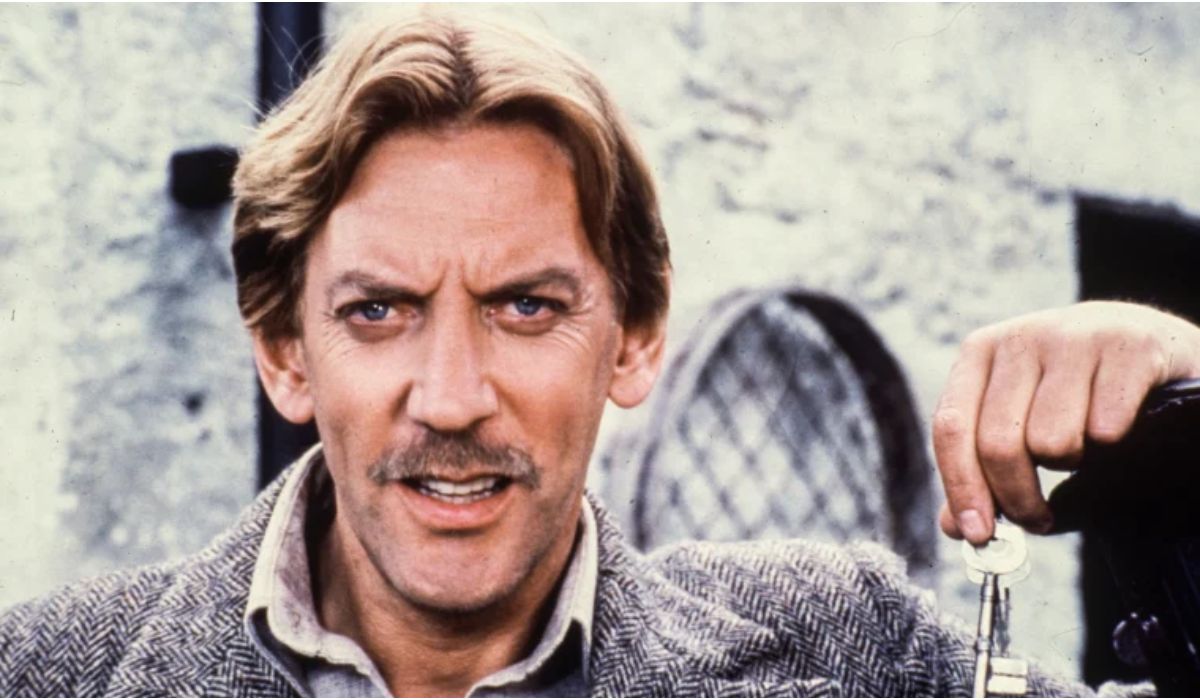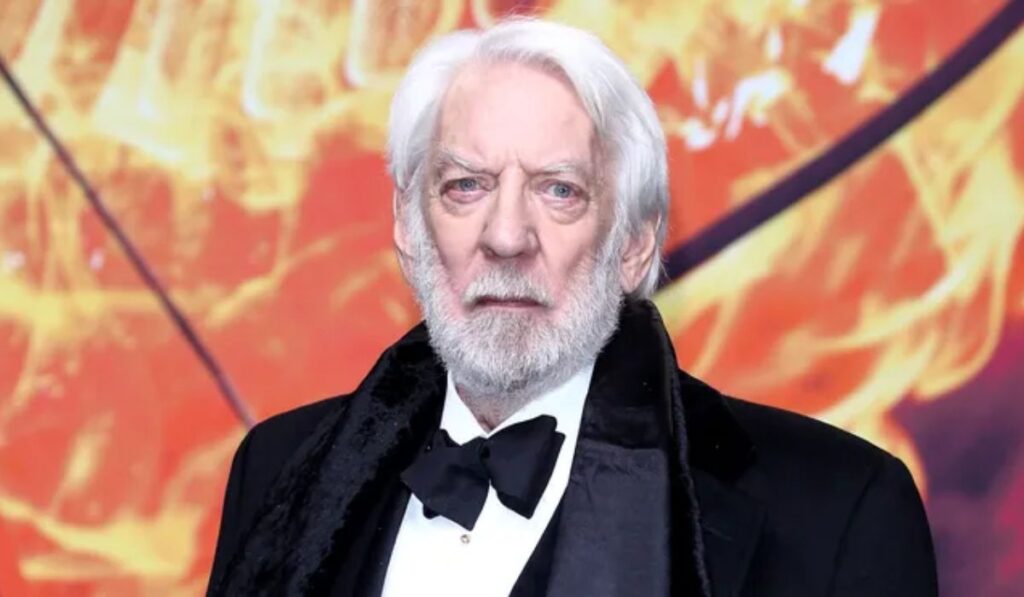After a protracted illness, Canadian actor Donald Sutherland, who starred in movies such as The Hunger Games and Don’t Look Now, passed away at the age of 88.
“With a heavy heart, I tell you that my father, Donald Sutherland, has passed away,” his actor son Kiefer Sutherland stated. One of the most significant actors in movie history, in my opinion.Never be afraid of a role—whether it ugly, good, or horrible. One can never ask for more than that—he did what he loved and loved what he did. A life well-lived.
Throughout the course of a career spanning more than fifty years, Sutherland accumulated nearly 200 credits.

An abundance of tributes and support were received after the news.
Actor Rob Lowe referred to his former co-star Sutherland as “one of our greatest actors” after they worked together on the miniseries Salem’s Lot.
“It was my honor to work with him many years ago, and I will never forget his charisma and ability,” he posted to X/Twitter.
Co-star Cary Elwes of the 2001 television movie Uprising expressed his “devastation” at Sutherland’s passing.
“Our hearts are breaking for you,” he wrote on Instagram in response to Kiefer. “I’m really appreciative to have worked and known him. Our love is being sent.
A “deeply, deeply star-struck” Canadian Prime Minister Justin Trudeau recalls his initial impression of Sutherland.
“My thoughts go out to Kiefer and the entire Sutherland family, as well as all Canadians who are no doubt saddened to learn, as I am right now,” he stated.
“He was a man with a strong presence, a brilliance in his craft and truly, truly a great Canadian artist,” he stated.
Sutherland was hailed as “one of the most intelligent, interesting [and] engrossing film actors of all time” by Ron Howard, who directed him in the 1991 movie Backdraft.
Sutherland, a Canadian native originally from New Brunswick, began his career as a radio news reporter before moving to London in 1957 to attend the London Academy of Music and Dramatic Art.
After that, he started playing bit parts in British TV shows and movies.
His first notable appearances were in combat movies, such as The Dirty Dozen from 1967, Kelly’s Heroes, and M*A*S*H from 1970.
In Alan J. Pakula’s 1971 thriller Klute, starring Sutherland, Jane Fonda played a detective who enlists the help of an expensive call lady to help with a missing person’s investigation.
They spent two years dating.
He also portrayed an IRA member in The Eagle Has Landed, a college lecturer who smokes drugs in National Lampoon’s Animal House, and the main character in the 1978 Invasion of the Body Snatchers remake during the 1970s.
Sutherland portrayed the father of a suicidal adolescent in the Oscar-winning film Ordinary People during the 1980s.
In the 2000s, he made the switch to television, making appearances in shows including Commander-in-Chief and Dirty Sexy Money.
He played a lot of roles, yet he never received an Oscar nomination. In 2017, he was given an honorary Academy Award.
Throughout his career, Sutherland was well-known for his political activity; he and Fonda participated in anti-Vietnam War demonstrations.
In several of his characters, such as the oppressive President Snow in The Hunger Games: Mockingjay – Part 2, he also incorporated his ideals.
In 2015, Sutherland expressed his hope to the BBC that the film’s social-political message will increase the awareness of the outside world among young viewers.
The official Hunger Games Twitter account said, “We asked the kindest man in the world to portray the most corrupt, ruthless dictator we’ve ever seen,” after the news of his passing. “Among the many unforgettable characters that shaped Donald Sutherland’s illustrious career, he was able to create one more due to his extraordinary acting prowess. Our condolences go out to his family. We consider ourselves fortunate to have met and collaborated with him.”
He also said to the BBC that the biggest shift he had seen in the business was the increase in “a lot of money” that actors were making.
“I don’t believe that anyone in my generation went into acting in order to get money. I had never thought of it. I was earning £8 a week [here, on a London theater]. In 1964, I earned £17 a week as a lead actor in a play at the Royal Court,” he remarked.
He stated at the moment that he had no intention of leaving acting behind.
It’s an enthusiastic endeavor. Actors’ retirement is spelled ‘DEATH,'” he declared.
Made Up, But Still True, his book, is slated for release in November.

